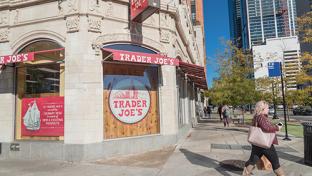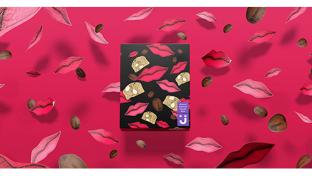Overcoming Obstacles to Private Label Success
As part of our Private Label Outlook coverage for the February 2019 issue of Progressive Grocer, we asked various experts to weigh in on how grocers could avoid the pitfalls to private-brand success with products that resonate with consumers. The responses are as follows:
Karen Strauss, Principal, Cadent Consulting Group
Performing as a true brand versus the historical “me too” private label requires more work. Staying attuned to consumer trends, designing attractive packaging, developing appealing brand names and delivering innovation are all more challenging than “copying” an already successful brand. Further, as private labels become true and relevant brands, they will face competition from their national-brand competitors. And finally, a retailer’s private label is a reflection upon the retailer itself, so ensuring trust in that private label is paramount. Trust is the most important bond that retailers can establish with their shoppers. And if this bond is broken (e.g., quality issue, recall, etc.), it can impact the retailer broadly.
Doug Baker, VP, Private Brands and Technology, Food Marketing Institute (FMI)
According to FMI’s “Power of Private Brands” research series, capital investment has the potential for greatest risk. … [R]etailers who remain nimble, listen to their customers and develop strong partnerships with manufacturers will have the best opportunity to develop brands and products their consumers will be willing to pay for.
Brian Sharoff, President, Private Label Manufacturers Association (PLMA)
The obstacles to private label success vary by retailer. Those who still believe that national brands is the best strategy for themselves and their customers need to get over this wishful thinking and build a competitive store-brand world for themselves. Those who have pioneered in store brands need to make sure that they do not take the customer for granted and continue to respond to what shoppers want.
Steven Howell, Solutions Sales Consultant, Solutions for Retail Brands Inc. (S4RB)
Private brands have never been more important to a retailer’s strategy, and this means they should be viewed as a strategic pillar to provide a competitive edge. Indeed, many retailer brands are now viewed as brands in their own right, with Kroger’s Simple Truth a great example of this trend. Rather than viewing their brands as an afterthought for value products, retailers should have a genuine strategy for differentiated private label ranges and grow them as valued assets.
Retailers also need to focus on creating product integrity. There has to be a connection between your customers and the brands you own. Consumers care far more about a brand that aligns with their belief system, whether that means tree-free toilet paper or the chemicals – or, indeed, the lack of them – used to wipe down their counters. The simple message is, be authentic and original. Don’t be afraid to fail, as failure is all about applying the lessons.
Of course, building brands is hard work: It takes an army to achieve great results, and your suppliers can be the difference. Working as one team with partners to increase engagement and challenging them to innovate will result in better products and happier customers. Building a strong brand requires many hands and minds, so leverage your resources intelligently.
John Paul, VP, Private Brands, SpartanNash
One obstacle is supplier consolidation. There are fewer suppliers in most categories today than there were previously. To overcome this, grocers can partner with a company like Topco to aggregate volume across members to be relevant with suppliers. Being part of aggregation buying efforts is a way to position yourself better with those suppliers. At SpartanNash, we offer a number of Topco brands to complement our exclusive Our Family, Open Acres, Good to Go, Stoked and Nash’s Coffee private label brands and provide private label options to store guests in every area of the store.
We also live in a world where new items are vying for position at the shelf, meaning we have the added challenge of maintaining shelf space in an already crowded atmosphere. As a result, we must apply solid category management principles – staying current, maintaining good shelf management principles and performing SKU rationalization more frequently to make sure that nonperforming items are being identified and taken off the shelf.
Finally, as grocers, we need to lead as innovators – creating new items and finding that “white space” that is used to fill the consumer needs. Suppliers and grocers have to be more on the cutting edge as opposed to the following edge. We can do so by continuing to pressure suppliers and showing interest in growing their products and product lines, as well as trying out new items and addressing the need for clean ingredients. Grocers have to push suppliers to be on top of consumer preferences relative to ingredients, trends and sustainably sourcing products.
Editor's Note: Grocery distributor and retailer SpartanNash is No. 35 on PG's 2018 Super 50 list of the top grocers in the United States.
Jeremiah McElwee, SVP Merchandising and Product Development, Thrive Market
The most challenging aspect for us is typically supply chain work and diligence. For our brand, we find that it is very rare for us to find a supplier that makes a product we would automatically put our brand on. It is not uncommon for us to spend countless hours, sometimes many months, working with suppliers on their ingredients, connecting them with secondary raw material suppliers or co-manufacturers, and then concurrently be verifying if all aspects of said supply chains are ethical: that people are being paid fairly, environmental standards are being upheld, etc.
Then, after all that, you still need to come back to minimum order quantities and cost/retail scenarios to ensure the product is viable for both your producer and your customers. There are many obstacles along the way that can make what may seem like a very simple product take two to three years to get to market.
The best way to overcome this is a combination of diligence, persistence and networking. We work hard to build transparent, constructive, open partnerships with our suppliers and the entire organic/natural community so that we have many connections to pull from or make at any given time. We are cautious to not overstate opportunities and conscious to listen to what our suppliers are telling us so that we build long-term, reliable relationships that last.







